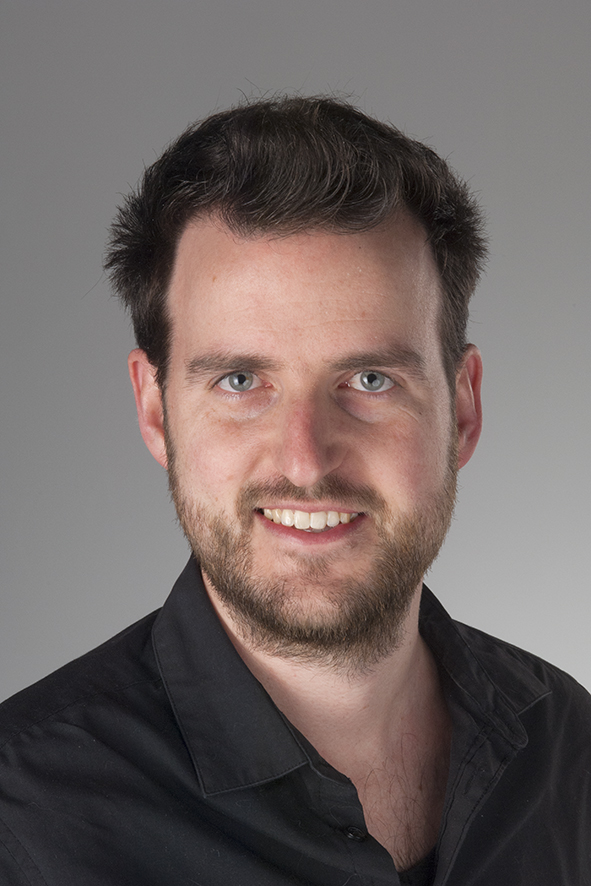Associate Professor
Strategic program(s):
Biography
Who am I?
I am an expert in discovering, testing, and applying novel study designs and analysis methods for patient-oriented clinical research. My work focuses on the development, validation, implementation, and evaluation of medical technology (e.g., clinical prediction models, diagnostic tests, and digital healthcare innovations) to direct individualized treatment and care decision-making.
Primary focus of research
Since 2016, my research has increasingly focused on individualized clinical decision-making in cancer treatment, with a strong emphasis on risk prediction models. My research achieved significant impact, including successful funding acquisition, scientific publications, and development of analytical scripts.
Past and current activities
I am the national senior methodologist responsible for the development, validation, updating and implementation of clinical models that predict treatment effectiveness and radiation-induced toxicity to guide radiotherapy strategies, e.g., proton therapy. In this internationally renowned and unique project, I supervise numerous clinical and methodological researchers. I collaborate closely with (inter)national stakeholders, inside the UMCU, e.g., Division of Imaging and Cancer, Data Science & AI labs, and outside, e.g., PMC, EORTC, NVRO, Zorginstituut Nederland, Zorgverzekeraars Nederland, and NFK. My methodological work directly impacts clinical practice in The Netherlands and beyond as it is directly applied in the clinical prediction models that are currently nationally and internationally used for model-based treatment decisions.
I currently lead a team of researchers on personalized prediction model-based treatment decisions in cancer patients, especially in radiotherapy. Since 2016, after my 2-year visit to Stanford University (personal NWO Rubicon grant; supervisor: Prof. John Ioannidis), I have gradually and successfully expanded my team via multiple successful grant applications, including from ZonMw (PI), Horizon 2020, and KWF (multiple). My expertise and visibility are evident from invitations to methodologically guide the introduction of proton therapy in the Netherlands (see above), to discuss with global leaders the future of personalized radiotherapy (Beyond QUANTEC meeting), and contribute to in-house initiatives like the Data Science & AI labs, particularly the AI methods lab. In addition to my team lead leadership role, I am the vice chair of the Methods of Epidemiological Research Team at the Julius Center (>25 researchers). My broad training, combining clinical epidemiology with biomedical engineering, allows me to effectively collaborate and connect team projects with ongoing initiatives. I actively seek collaboration within and outside the UMC Utrecht and encourage team members’ involvement. Team members consult me on strategic, career, methodological, and personal aspects, and weekly and occasional meetings are organized to discuss state-of-the-art methodology.
Additionally, I am an expert in the development (e.g., alternative RCT designs, including prediction-model based evaluation of radiotherapy techniques [WhyMBA project; PI], adaptive early phase trials [ONCODE-PACT project], learning healthcare systems [ETHMIRE project]) and application (e.g., traditional, and alternative RCT designs, and evidence syntheses methods) of novel methods to evaluate healthcare innovations. These innovations are notably medical devices, meaning I have MDR and IVDR expertise: I contributed to five emergency, Ministry of VWS commissioned landmark COVID-19 rapid antigen testing studies (leading to an invitation by the CCMO to construct IVDR guidance for medical ethical review committees) and evaluated >30 commercial healthcare innovations at THINC. (www.thinc.healthcare), including a cancer-related fatigue treatment app. My visibility and expertise have led to a senior advisor position for the nationwide network of Zorgevaluatie & Gepast Gebruik (ZE&GG).
My work has been published in high-impact journals (n=140 papers; cited >8000 times) and incorporated in clinical guidelines (see above). I contributed to >20 successful grant applications, of which most grants obtained in the last 5 years, including one as PI, were focused on (methodology relevant for) cancer research, e.g., KWF, Horizon 2020, ZonMw grants, accumulating to a total of over 20 million euros.
Future plans
In the coming years, my team and I will continue to lead global advancements in personalized treatment strategies in cancer. We will focus on developing and applying cutting-edge techniques in epidemiology, statistics, precision medicine (molecular diagnostics), and data science (e.g., AI) to further optimize clinical decision-making.
Research aim
Our mission is to drive impactful innovation for cancer prevention, diagnosis, prognosis, treatment, and care through interdisciplinary research, fostering collaboration among researchers across disciplines within the Julius Center and beyond.
Go to groupLid beoordelingscommissie - Beoordelen subsidieaanvragen binnen de KWF beoordelingscommissie Exploratie - KWF
Lid beoordelingscommissie - TKI ICT en TKI Life Sciences & Health (LSH) - Cybersecurity call voor publiek-private samenwerking - Topsector ICT
lid commissie Goed Gebruik Hulpmiddelenzorg Thuis - beoordelen wetenschappelijke subsidieaanvragen in GGH Thuis ronde ZonMw - ZonMw
lid adviescommissie veelbelovende zorg - beoordelen wetenschappelijke subsidieaanvragen in Veelbelovende Zorg ronde van ZiN/ZonMw - Zorginstituut Nederland en ZonMw

